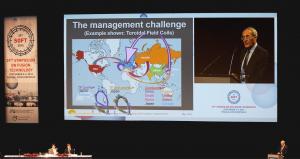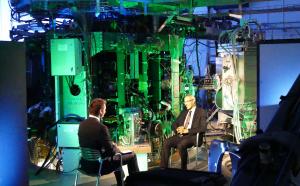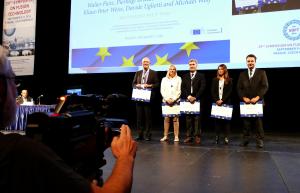29th SOFT opens its curtains in Prague
The 29th edition of the Symposium on Fusion Technology (SOFT) today opened its curtains in the Czech capital of Prague. With 30 exhibitors and more than 800 scheduled posters and presentations, SOFT once more proves to be one of the major platforms for exchanging the latest developments in fusion research and fusion technology.
During this year's edition the SOFT Fusion Innovation Prize, launched by Euratom in 2014, was awarded for the second time. Third prize went to Jonathan Naish from the UK for his work on innovative software (VORTEX) that combines the virtual reality environment with results of radiation transport calculations to allow improved radioprotection in radiation environments of high complexity.




